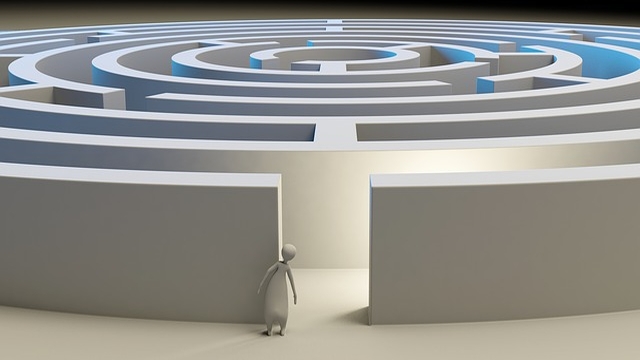
Science in crisis: from the sugar scam to Brexit, our faith in experts is fading
Andrea Saltelli, University of Bergen
Worldwide, we are facing a joint crisis in science and expertise. This has led some observers to speak of a post-factual democracy – with Brexit and the rise of Donald Trump the results.
Today, the scientific enterprise produces somewhere in the order of 2m papers a year, published in roughly 30,000 different journals. A blunt assessment has been made that perhaps half or more of all this production “will not stand the test of time”.
Meanwhile, science has been challenged as an authoritative source of knowledge for both policy and everyday life, with noted major misdiagnoses in fields as disparate as forensics, preclinical and clinical medicine, chemistry, psychology and economics.
Perhaps nutrition is the field most in the spotlight. It took several decades for cholesterol to be absolved and for sugar to be re-indicted as the more serious health threat, thanks to the fact that the sugar industry sponsored a research program in the 1960s and 1970s, which successfully cast doubt on the hazards of sucrose – while promoting fat as the dietary culprit.

Gleb Garanich/Reuters
Destructive trend
We think of science as producing truths about the universe. Triumphs of science, like the recent confirmation of the existence of gravitational waves and the landing of a probe on a comet flying around the sun, bring more urgency to the need to reverse the present crisis of confidence in other areas of the scientific endeavour.
Science is tied up with our ideas about democracy – not in the cold war sense of science being an attribute of open democratic societies, but because it provides legitimacy to existing power arrangements: those who rule need to know what needs to be done, and in modern society this knowledge is provided by science. The science-knowledge-power relationship is one of the master narratives of modernity, whose end was announced by philosopher Jean-François Lyotard four decades ago. The contemporary loss of trust in expertise seems to support his views.
Still, techno-science is at the heart of contemporary narratives: the convictions that we will innovate our way out of the economic crisis, overcome our planetary boundaries, achieve a dematerialised economy, improve the fabric of nature, and allow universal well-being.
The appeal of reassuring narratives about our future depends on our trust in science, and the feared collapse of this trust will have far-reaching consequences.
The cult of science is still adhered to by many. Most of us need to believe in a neutral science, detached from material interests and political bargaining, capable of discovering the wonders of nature. For this reason, no political party has so far argued for a reduction in science funding on the basis of the crisis in science, but this threat could soon materialise.

DLR German Aerospace Center Follow, CC BY
The crisis we saw coming
The crisis in science is not a surprise – some scholars of history and philosophy of science had predicted it four decades ago.
Derek de Solla Price, the father of scientometrics – literally the scientific study of science – feared the quality crisis. He noted in his 1963 book, Little Science, Big Science, that the exponential growth of science might lead to saturation, and possibly to senility (an incapacity to progress any further). For contemporary philosopher Elijah Millgram, this disease takes the form of disciplines becoming alien to one another, separated by different languages and standards.
Jerome R Ravetz noted in 1971 that science is a social activity, and that changes in the social fabric of science – once made up of restricted clubs whose members were linked by common interests and now a system ruled by impersonal metrics – would entail serious problems for its quality assurance system and important repercussions for its social functions.
Ravetz, whose analysis of science’s contradictions has continued to the present day, noted that neither a technical fix would remedy this, nor would a system of enforced rules. Scientific quality is too delicate a matter to be resolved with a set of recipes.
A perfect illustration of his thesis is the recent debate about the P value – commonly used in experiments to judge the quality of scientific results. The inappropriate use of this technique has been strongly criticised, provoking alarm – and statements of concern – at the highest levels in the profession of statistics. But no clear agreement has been reached on the nature of the problem, as shown by the high number of critical comments in the ensuing debate.
Philip Mirowski’s recent book offers a fresh reading of the crisis in terms of the commercialisation of science’s production. Scientific research deteriorates when it is entrusted to contract research organisations, working on a short leash held by commercial interests.
The present trajectory will result in an impasse in many areas of science, where it may become impossible to sort out the good papers from the bad.

CC BY-SA
Science-based narratives and the social functions of science will then lose their appeal. No solution is possible without a change in the prevailing vision and ideology, but can scientific institutions offer one?
The supremacy of expertise
Here the stakes are high and perverse systems of incentives entrenched. Many scientists are highly defensive of their work. They adhere to the deficit model, in its standard or glorified form, whereby if only people understood science – or at least understood who the true experts were – then progress would be achieved.
Scientists often subscribe to the myth of one science, and promote actions for or against a policy based on their position as scientists. In a recent case, more than 100 Nobel laureates took a side in a dispute over a genetically modified rice, a rather complex case where more prudence would have been in order.
Climate is another battlefield where the idea that “science has spoken” or “doubt has been eliminated” have become common refrains.
Many scientists defend the supremacy of expertise; if lay citizens disagree with experts, it is the former who are wrong. This because scientists are better than bankers and politicians, or simply better human beings, who need protection from political interference.
There is an evident tension between this view and what takes place in the arena of evidence-based (or informed) policy. Here legislation developed to fight racketeering is used by activists and scientists to target their peers in the opposing faction, in hot fields from climate to biotechnologies.

DanaK~WaterPenny, CC BY
The science of economics is still in control of the master narrative. The same craft that failed to predict the latest great recession – and worse, directly engineered it thanks to its financial recklessness – is still dictating market-based approaches to overcome present challenges. By its own admission, the discipline, which supported austerity policies with a theorem based on a coding error, has little clue as to what to do if the global economy will face another downturn.
The economic historian Erik Reinert notes that economics is the only discipline impermeable to paradigm shifts. For economics, he says, the earth is round and flat at the same time, all the time, with fashions changing in cyclical shifts.
One can see in the present critique of finance – as something having outgrown its original function into a self-serving entity – the same ingredients of the social critique of science.
Thus the ethos of “little science” reminds us of the local banker of old times. Scientists in a given field knew one another, just as local bankers had lunch and played golf with their most important customers. The ethos of techno-science or mega-science is similar to that of the modern Lehman bankers, where the key actors know one another only through performance metrics.
Change takes place at an ever-accelerating pace; the number of initiatives to heal science’s diseases multiply every day from within the house of science.
Increasingly, philosophers warn that not all is well in our ever-stronger symbiotic relation with technology. The effects of innovation on jobs, on inequality, on our way of knowing and of making sense of reality, are all becoming problematic. Everything moves at a pace that frustrates our hope of control.
What can we do?
If this wave of concern will merge with the science crisis, then important facets of our modernity might be up for discussion. Will this lead to a new humanism as hoped by some philosophers or to a new dark age, as feared by others?
The conflicts described thus far involve values in conflict, of the type dealt with in something called “post-normal science”. Many dislike the name of this approach for its postmodern associations, but appreciate its model of extended peer communities. These communities bring together experts from across disciplines – as different disciplines see through different lenses – and anyone affected or concerned with the subject at hand, with possibly different views about what the problem is.
Today, extended peer communities are set up by some activist citizens and scientists. This format encourages a humbler, more reflexive attitude. It suggests to citizens a more critical and participatory attitude in matters of science and technology, with less deference towards experts.
New media provides fertile ground for these communities. “Could the internet be to science what the printing press was to the church?” asks the science and technology philosoper Silvio Funtowicz.
If this process leads to reform in science and challenges the monopoly of knowledge and authority – as to some extent we see happening in health – then we might go some way to rebuilding trust in one of the most important facets of modern life.
![]()
Andrea Saltelli, Researcher at the Centre for the Study of the Sciences and the Humanities (SVT) , University of Bergen
Article source: This article was originally published on The Conversation. Read the original article.






